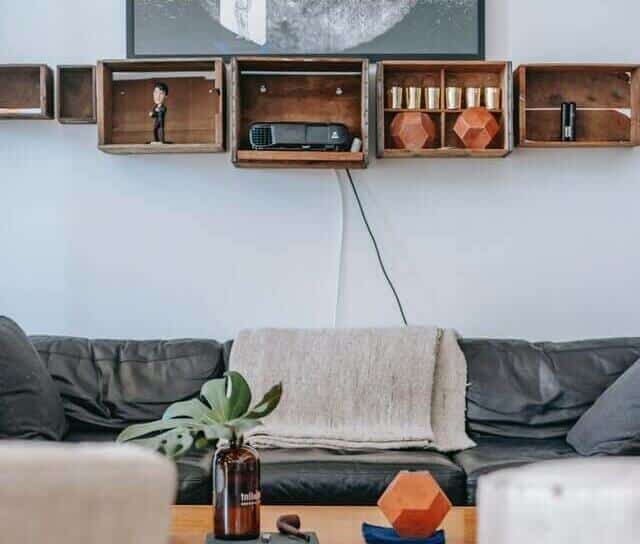How to Use Feng Shui to Achieve Harmony in Your Home
What is feng shui?
Well, it’s essentially an ancient Chinese philosophy that says you can change your life by furnishing your home in a certain way. According to this philosophy, if you arrange your furniture and decor in a balanced manner, you’ll achieve mental balance in your mind.
It makes sense. After all, living in a cluttered, disorganized home is a surefire way to make yourself feel off balance. So, it only seems logical that living in a clean and strategically organized home would bring positive energy to your space and make you feel more centered.
In this article, we’re going to discuss the “rules” of feng shui. You can bend them to suit your taste, but they’ll all help you to make your home feel more harmonious.
Keep Your Belongings Neat
Although it sounds simple and broad, this is one of the most important principles of feng shui:
From the clothing in your closets to the books on your bookshelf to the files in your home office, all of your items should be kept neat and tidy.
This may mean you have to get rid of some things. If there are clothes on your closet floor that you haven’t worn for years (despite telling yourself that you’re going to someday), donate them.
It’ll free up space in your closet and create room for good vibes to flow in.
Related: Using the KonMari Method, Here are 7 Ways to Organize Your Interiors
Separate Your Workspace from Your Resting Space
This one’s hard, considering that many of us work from home these days. But if you’re serious about having good feng shui in your home, you should create separate areas for working and resting.
This means no working on the couch or in bed. It also means having a desk that you use strictly during work hours.
If you live in a studio apartment, it may be kind of tough to do this. But, it’ll create a clearer division between your workday and the rest of your life.
Remember that feng shui is all about balance, and that means work-life balance!
Distribute the “Weight” of Each Room Evenly
You also need to balance your home in a physical sense. In other words, there should be an even amount of material on each side of every room.
Now, this doesn’t mean that you need to buy doubles of everything and lay out each room symmetrically. But you shouldn’t decorate in a lopsided way, either.
If there’s an end table and lamp on one side of your couch, put an end table on the other side. If you don’t have a lamp for that table, get a vase that’s similar in size to the lamp, or maybe even two smaller vases that take up the same amount of space as the lamp.
Picture every room as a playground see-saw. If one side of the room would weigh down the other side and leave it dangling in the air, your room is off balance and you need to redistribute things.
See also: Easy and Impactful Decorating Tips
Don’t Sleep Near Windows or Doors
Under the rules of feng shui, you should never sleep with an opening behind your head or next to your body. Every room in your home should offer adequate “support” for your body and mind, especially your bedroom, which is where you regenerate.
Instead, place your bed so that it faces the door and that your feet overlap with as few windows as possible. This is known as the “commanding position” in feng shui, and it’s believed to bring the most balance to your bedroom.
Keep Your Entryway Clear
If you’re following the feng shui tips above, your entire home should be neat and tidy. But if nothing else, your front door should open to a clear, obstacle-free space.
Even if you live in a tiny apartment and your door opens directly to your living room/bedroom, keeping the space around the door clean will make your home more inviting.
Think about it:
When you come home from a long day at work, do you want to walk into a cramped, messy space? Of course not!
You’ll feel way more at peace when you designate a clear path around your front door.
Use Color Strategically
Colors have a powerful impact on our minds. If your brain has an adverse reaction to a particular color, you’re not going to feel comfortable in a room painted that color.
Red, for example, is often associated with threatening or alarming situations. It’s the color of blood, so it scares us a little bit on a primitive level. Therefore, it might not make sense to paint your bedroom walls red (unless you want to wake up in a state of anxiety every day).
Light colors like sky blue, sage green, and dandelion yellow are far more calming, and they’re the types of colors a feng shui expert would recommend for wall paint.
So, before you head to the hardware store for painting supplies, do some research into the psychology of color and think about how it affects you on a personal level. The final result will feel much more peaceful and balanced.
Related: No Paint Allowed? Here are 9 Ways to Add Color to Your Apartment
Take It to the Next Level: Consult the Bagua Map
The first step in practicing good feng shui is to create a general sense of balance in every room of your home. It’s actually pretty simple if you get rid of clutter, decorate carefully, and keep the colors somewhat neutral.
However, when you’re ready to take it up a notch and practice feng shui like a pro, use a bagua map.
A bagua map is a guide that helps you divide your floor plan into nine separate zones, each based on a different type of energy. To use it, you “map” the bagua over your existing floor plan, and the map tells you what types of items to place in each room.
Here’s an example:
According to the bagua, the top-left corner of every home should be dedicated to wealth and abundance. So, whichever room is in the top-left corner of your home should be where you keep your most expensive items (collectibles, jewelry, etc.).
The bottom-left corner of your home, on the other hand, should be dedicated to knowledge and spirituality. If you’re following the rules, you’d keep your book collection in that part of the house.
Ultimately, this system is supposed to bring good energy flow to your home and to prevent rooms from getting cluttered with too many different types of emotions.
You don’t need to hire a Feng shui consultant to bring a sense of balance to your living space. You can give your home a makeover simply by:
- Decluttering your belongings
- Designating a workspace and a resting space
- Distributing your furniture and decor evenly throughout each room
- Keeping your bed headboard away from doors and windows
- Clearing your entryway/mudroom
- Using colors that make you feel relaxed
- Consulting a bagua energy map
Keep these basic principles in mind as you’re decorating, and you’ll be amazed by the sense of peace it brings you!
See also: 7 DIY Holiday Christmas Decorations

